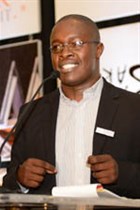
Top stories






More news


Marketing & Media
Ads are coming to AI. Does that really have to be such a bad thing?














Maths anxiety is real; it spreads like a plague and is highly infectious. Little has been done to awaken people's attention towards the deadly implicit and indirect disease that more than 60% of the world suffers from. Nelis Vermuelen, a member of the Faculty of Education and Social Studies at the Cape Peninsula University of Technology says, "Many people have negative feelings towards mathematics. In a number of cases these negative feelings turn into real fear of anything mathematical. We have learners suffering from mathematical anxiety in our schools".
Mathematical anxiety has shaped the way society views the subject for centuries and this has constricted humanity's ability to manipulate the subject so as to harness the possibilities that its mastery presents. It is a disease that emanates from the school system as currently configured.
According to Wikipedia, Mark H. Ashcraft defines maths anxiety as "a feeling of tension, apprehension or fear that interferes with maths performance" (2002, p. 1). Ashcraft (2002) suggests that highly anxious maths students will avoid situations in which they have to perform mathematical calculations. Unfortunately, math avoidance results in less competency, exposure and math practice, leaving students more anxious and mathematically unprepared to achieve.
The subject has always been viewed as a preserve of a few talented, special white men who were hand-picked by God to decipher some of his messages to humanity.
As a mitigation measure to alleviate humanity from the monster it created out of the beautiful subject called mathematics, it is necessary that deliberate interventions be undertaken to liberate all the learners' support structures from the fear of maths. This is analogous to the medical isolation and treatment of affected individuals. We have to find ways of stopping the transmission of mathematical anxiety by affected individuals to the young ones who have a positive view on life.
Let us stop the spread of mathematical anxiety through positive messaging and reinforcing positive behaviour traits with respect to the subject. Like polio, we can eradicate this disease if we are deliberate in our actions and non-actions. Let's give the young ones a chance at maths by spreading the word that maths can be done by all if taught well. We need to move away from maths being a series of rules and algorithms that have to be obeyed to a more liberal all-encompassing system that trains individuals to be prolific problem solvers regardless of learning style, race and gender.
Success can only be attained if a concerted effort to harness the mathematical knowledge capital resident in society is harnessed by encouraging Individual Social Responsibility (ISR) from all the doctors, engineers, accountants and other knowledge-sharing well-wishers. It is no secret that the best high school students rarely become teachers thus we have to tap into this pool to actively give back to society and change the perception and outlook of mathematics. Mathematically talented individuals ought to take it upon themselves to take up the role of mathematics vigilantes in their families and communities.
Yes we can! Let us kick mathematical anxiety out.
